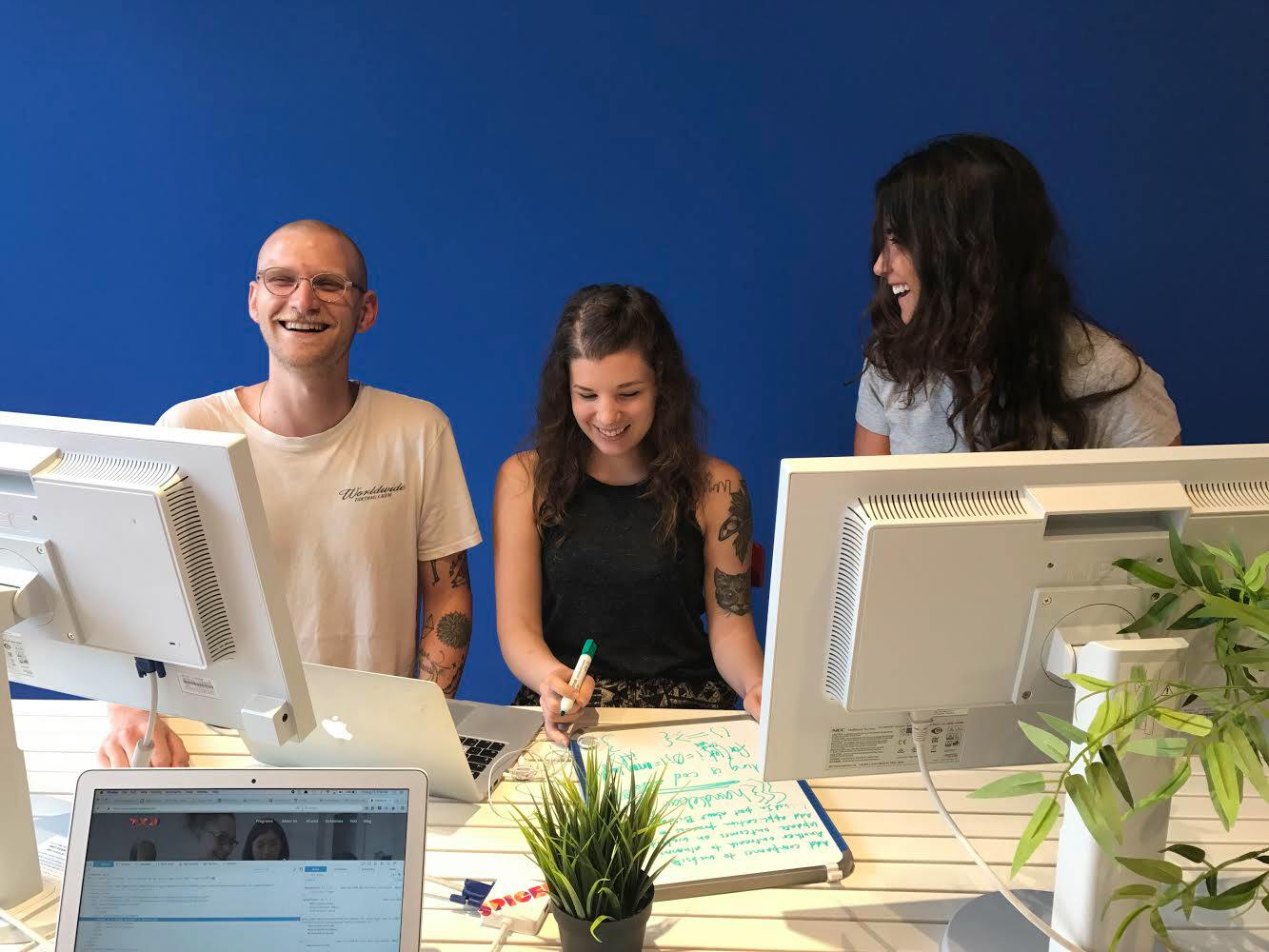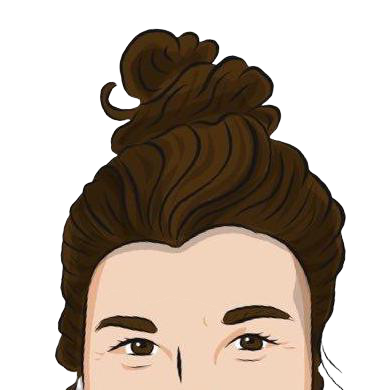Googling my way from journalism to engineering and back
FAWCO's Inspiring Women Magazine

This edition of FAWCO's Inspiring Women Magazine is also available as an interactive PDF. And yes, that's me on the cover!
If living in Berlin has taught me anything, it's the importance of search engines.
My first life-altering Google search happened shortly after moving to Germany from the United States. It had been days since I had a conversation with another human besides my German partner. I was lonely. So I apprehensively typed six words into the box on my screen: "how to make friends adult berlin." When those results were useless because Freund was out of my vocabulary, I added "expat." That's how I found the American Women's Club of Berlin.
The second significant search led me to a career in technology. And the third, software engineering.
Before I get into that, some context.
I arrived in Berlin with only a journalism degree and a whole lot of unfounded confidence. I was an idealist, planning to 'change the world with my words.' Turns out, being a journalist in a country where you don't speak the language is hard. A byline here and there didn't pay enough to cover my rent or qualify for a visa. I realized that I needed something more sustainable.
After weeks of uncertainty and growing concern my tourist visa would expire, I did another search: "how to work in Berlin as expat". I learned that this city has a growing technology and startup scene. And the best part? The primary language in most offices is English. The next day, I submitted my CV to any role on BerlinStartupJobs.com that listed 'native English speaker' as a qualification.
Two years and a couple miscellaneous marketing jobs later, I found myself back where I started after the startup sponsoring my working visa filed for bankruptcy. Judging by my empty inbox, prospects for another full-time communications role were grim. My colleagues in engineering, however, were thriving. Most were already snatched up by a competitor and the rest were "weighing their options" (a foreign concept to me at the time).
I always had a hunch that software engineers were better off. Upper management never questioned if their work was important. Not to mention many of their salaries were double mine. Engineers also possessed an "in-demand" skill. Their post-insolvency job hunt compared to mine made this strikingly clear.
There were downsides to engineering, I was sure. For instance, being hunched over a screen all day surely destroys your back and their office was vaguely sweaty and pungent like a locker room. But the promise of stability kept creeping into my thoughts. If I wanted to build a life with my partner in Germany, I would need a visa and a reliable income. Job security and the ability to pay off my lingering student debt wouldn't hurt. I didn't have any of that, but software engineers did.
Illuminated again by the glow of Google's home screen, I hesitantly typed: "how to become a software engineer". It felt ridiculous to ask a search engine for such major career guidance. The results yielded three options: Go back to university, teach yourself online, or attend a coding bootcamp. University would require either money or a better command of the German language, so that was out. I wasn't disciplined enough to be self-taught. The remaining option was a coding bootcamp. The only problem was that I had no idea what a coding bootcamp was.
According to edX, coding bootcamps are defined as "short-term, intense training sessions designed to prepare students for the practical reality of development." This is accurate... but it fails to articulate how grueling the experience can be.
In 2017, I attended Spiced Academy's 12-week web development program in Berlin. It was immersive - a minimum of eight hours per day at the school, plus review every night and project work over the weekend. Writing code also required rewiring my brain and taking a new, more logical approach to problem-solving. It was difficult. I cried frequently. I almost quit three times. But I made it.
Today, I'm working as a software engineer at a different startup. Most of my assumptions were true, although sometimes that stability is overshadowed by sexism and other systemic problems in the industry. It’s hard to complain though. Building websites is interesting enough and even more so when the paycheck comes in every month.
My background in journalism has also proven useful. I’ve written presentations about the technical concepts I’ve learned and traveled to conferences in Iceland, India, and Singapore as a result. Now I’m actively trying to combine journalism and engineering by writing for outlets like Future of Sex, a publication focused on the intersection of tech and human sexuality.
It’s impossible to say where this new career will take me, especially given how quickly technology evolves. But I’m confident I'll be able to figure it out.
Or, worst case, I'll Google it.
Liked this article?
Let me send updates to your inbox (and one day, a newsletter).
Unsubscribe anytime. No spam 🤖
